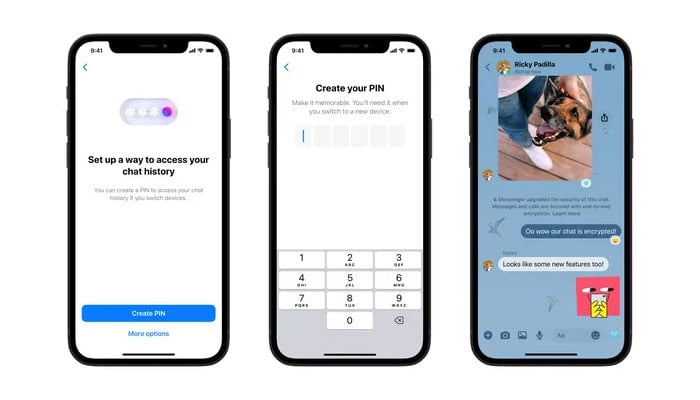Meta is finally delivering a promise that the company made years ago by announcing Thursday the launch of end-to-end encryption for one-on-one talks and calls on Messenger.
According to the company, only the sender and the recipient may see the contents of a message received using Messenger when end-to-end encryption is turned on.
In 2016, Messenger’s encrypted conversation capability was first made available as an optional feature. But after a lengthy court battle, proposals for two-person talks and end-to-end encrypted messages will now be accepted as standard practice.
“This has taken years to deliver because we’ve taken our time to get this right,” Loredana Crisan, vice president of Messenger, said in a statement shared with The Verge.
“Our engineers, cryptographers, designers, policy experts and product managers have worked tirelessly to rebuild Messenger features from the ground up.”

Crisan said that encrypted chats will not compromise Messenger features like themes and custom reactions. However, it may “take some time” for all chats to switch to default encryption.
The end-to-end encryption for group chats is still opt-in. Additionally, Instagram messages are still not encrypted by default, but Meta expects this to happen “shortly after” the rollout of default private Messenger chats.
Meta CEO Mark Zuckerberg announced in 2019 that the company planned to move toward encrypted ephemeral messages across its messaging apps, according to The Verge.
“I believe the future of communication will increasingly shift to private, encrypted services where people can be confident what they say to each other stays secure and their messages and content won’t stick around forever,” he wrote in a Facebook post. “This is the future I hope we will help bring about.”
By enabling encryption by default, most Messenger chats should remain unseen by Meta, and it will also prevent the company from providing the data to law enforcement.
Last year, a 17-year-old from Nebraska and her mother faced criminal charges for illegal abortion after police obtained their Messenger chat history.
Anti-encryption advocates argue that encryption makes it harder to identify bad actors on encrypted messaging apps like WhatsApp.




